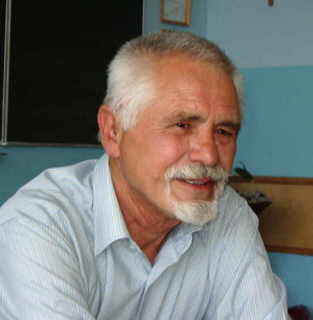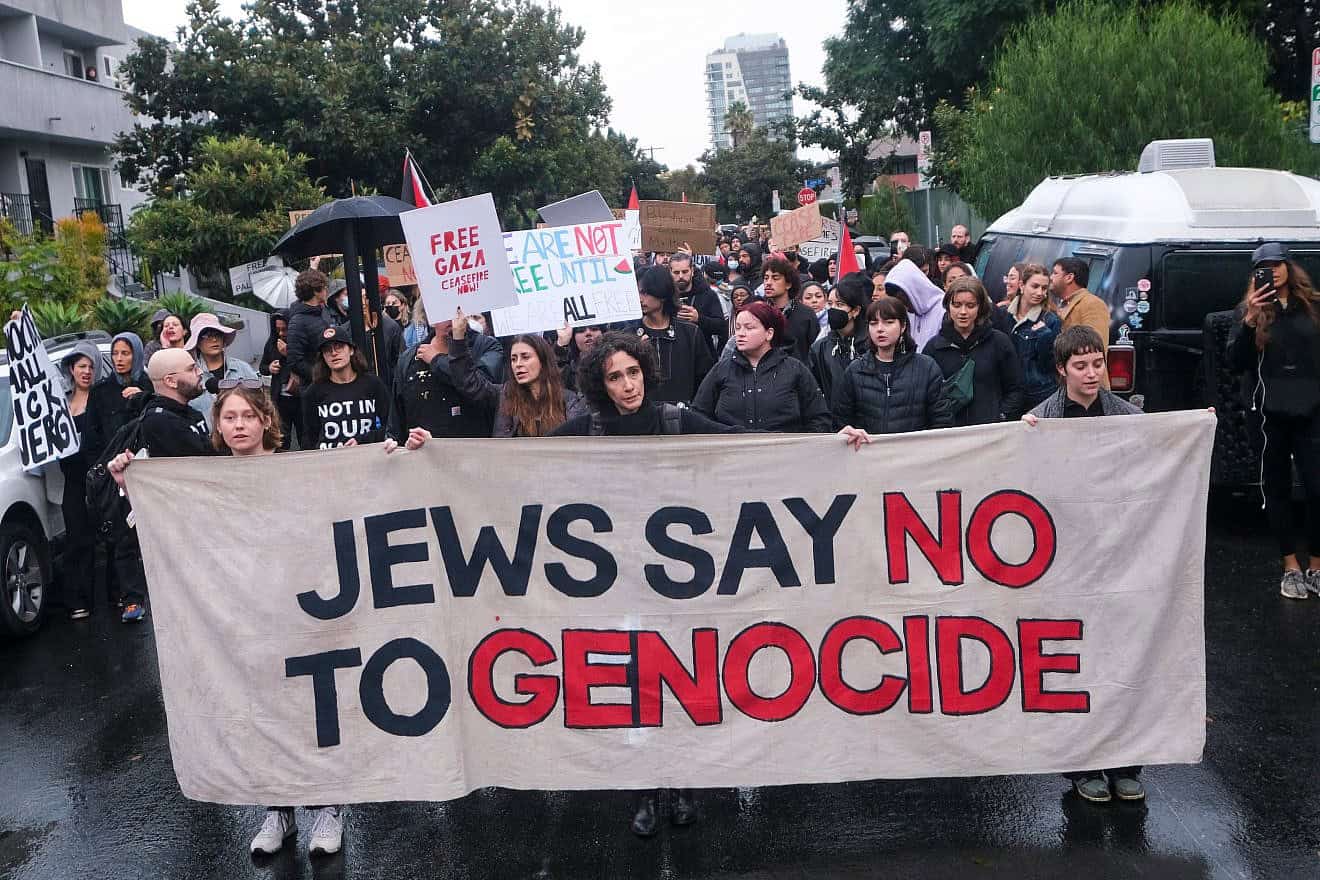 Kim jest fanatyk? Komu służy? Kogo nienawidzi?
Kim jest fanatyk? Komu służy? Kogo nienawidzi?
W 1951 roku doker i filozof samouk z San Francisco zadziwił świat, publikując przenikliwą analizę zjawiska ruchów masowych i fanatyzmu politycznego, która prędko zyskała szeroki rozgłos i uznanie środowiska akademickiego oraz trwale wpisała się do kanonu filozofii społecznej. „Prawdziwy wyznawca” Erica Hoffera po dziś dzień nie stracił na aktualności – to dzieło nieodzowne dla rozumienia naszej epoki galopującego populizmu i „wojen plemiennych” targających życiem społecznym.
***
„Dla większości z nas rzeczą nieodzowną jest dziś uzyskanie pewnego wglądu w motywy i reakcje prawdziwego wyznawcy. Choć bowiem nasz wiek jest wiekiem bezbożnym, jest on radykalnym zaprzeczeniem areligijności. Prawdziwy wyznawca wszędzie jest w natarciu, nawracając zaś i antagonizując innych, kształtuje oblicze świata na swoje podobieństwo. Niezależnie od tego, czy zamierzamy stanąć w szeregu razem z nim, czy przeciwko niemu, powinniśmy poznać wszystko, co poznać zdołamy, w kwestii jego natury i tkwiących w nim możliwości”.
Eric Hoffer
 Ruchy masowe i tęsknota do nienawiści
Ruchy masowe i tęsknota do nienawiści
Andrzej Koraszewski
Rob Henderson jest doktorem psychologii. To, co go różni od innych psychologów, to życiorys. Syn koreańskiej prostytutki i narkomanki, pierwsze lata życia w przyczepie campingowej, potem domy rodzinne, potem bezdomność, kradzieże, alkohol i narkotyki. Wreszcie wojsko i studia. Jego niedawno wydana autobiografia jest bestsellerem, ultrapostępowcy patrzą na niego podejrzliwie. Prawdę mówiąc, on na nich też. Henderson ukuł pojęcie luxury belief (luksusowy światopogląd lub luksusowe wierzenia). Żyjący w luksie chcą urządzać świat innym w oparciu o swoje wizje. Ten luksusowy światopogląd doprowadził już do tego, że większość amerykańskich dzieci w rodzinach ubogich wychowuje się w rozbitych rodzinach bez ojca, że masowa oświata nie dostarcza wykształcenia, demokracja przestała być respektowana, powraca anarchia i przemoc. Jego najnowszy artykuł na łamach The Free Press opowiada o proroctwie Erica Hoffera.
Fascynacja tego właśnie autora postacią dokera-samouka jest zrozumiała. O dzieciństwie Hoffera nie wiadomo nic. Urodził się gdzieś na przełomie XIX i XX wieku, jako młody człowiek w czasach wielkiej depresji pracował na farmach, zmywał naczynia w knajpach aż wreszcie, mając już ponad 40 lat, zostaje dokerem w San Francisco i może wolny czas poświęcić książkom. Podejrzewa się, że jego opowieść, iż urodził się w Nowym Jorku jest zmyślona, nie można wykluczyć, że był nielegalnym imigrantem (do końca życia miał niemiecki akcent). Nie tylko żarłocznie pochłaniał książki, ale zaczął pisać. Jego najsłynniejsza książka The True Believer: Thoughts on the Nature of Mass Movements (polski tytuł „Prawdziwy wyznawca”), ukazała się w 1951 roku i, jak twierdzi Henderson, była prorocza wówczas i jest jeszcze bardziej prorocza dziś.
Ta książka ma niespełna dwieście stron i od ponad 70 lat budzi zainteresowanie i podziw zarówno polityków, jak i badaczy. Czy Eric Hoffer zrozumiał istotę powstawania masowych ruchów lepiej niż inni? Być może należałoby to pytanie postawić inaczej, czy czytający tę książkę są w stanie zrozumieć, że nie traktuje ona tylko o ich wrogach, ale również o nich samych?
Eric Hoffer zmarł w 1983 roku. Ponad 30 lat po jego śmierci Hillary Clinton szukała w jego książce odpowiedzi na pytanie o popularność Donalda Trumpa.
Rob Henderson idzie nieco dalej. Dowiedział się o tej książce od znajomego po publikacji artykułu na temat dyskryminacji inaczej myślących na amerykańskich uniwersytetach. Pisał w tym artykule, że „Stany Zjednoczone eksportowały Coca-Colę, programy telewizyjne i muzykę. Dziś eksportujemy oburzenie, cenzurę i mobbing społeczny”. To w nawiązaniu do tego właśnie zdania znajomy powiedział mu, że powinien przeczytać książkę Erica Hoffera.
Przeczytał i ze zdumieniem doszedł do wniosku, że Hoffer zdołał uchwycić zjawisko, które obserwujemy w epoce smartfonów i mediów społecznościowych, kiedy ludzie zaczynają się bać konsekwencji wypowiedzenia jednego nieopatrznego słowa, w obawie nie tylko przed ostracyzmem, ale również przed utratą pracy i groźbami fizycznych ataków. Henderson przywołuje cytat z książki Hoffera:
[W] przypadku ruchu masowego powietrze jest ciężkie od podejrzeń. Jest wścibstwo i szpiegostwo, pełne napięcia obserwowanie i pełna napięcia świadomość bycia obserwowanym. Zaskakujące jest to, że ta patologiczna nieufność w szeregach nie prowadzi do niezgody, ale do ścisłego konformizmu. Wierni, wiedząc, że są stale obserwowani, starają się uniknąć podejrzeń, gorliwie trzymając się przepisanego zachowania i opinii. Ścisła ortodoksja jest w równym stopniu wynikiem wzajemnych podejrzeń, jak i żarliwej wiary.
Ci z nas, którzy pamiętają jeszcze życie w systemie komunistycznym doskonale wiedzą, że zwycięski ruch masowy nie wymaga wiary. Opiera się na kulturze nagród za donosy, na podejrzliwości i strachu. Hoffer w wolnym amerykańskim społeczeństwie obawiał się wyłonienia się fanatycznego masowego ruchu ze strony elit intelektualnych. Zdumiewał go fenomen nienawiści do swojego kraju ze strony elit dążących do nadzoru i dyktatu.
Ten dyktat wymaga kontroli języka, który ma strzec ortodoksji.
Proste słowa – pisze Hoffer – nabierają nowego znaczenia i zmieniają się w symbole w tajnych przekazach. Zatem u najbardziej wykształconego prawdziwego wierzącego widać analfabetyzm. Wydaje się, że używa słów tak, jakby nie zdawał sobie sprawy z ich prawdziwego znaczenia. Stąd też jego zamiłowanie do sprzeczek, dzielenia włosa na czworo i scholastycznego krętactwa.
Słowa stają się brzemienne w znaczenia, które nie mają z nimi żadnego związku.
The True Believer był debiutem Hoffera, po którym napisał jeszcze dziesięć książek. Do emerytury nadal pracował w stoczni. Potem zaproponowano mu wykłady na uniwersytecie w Berkeley.
Podobnie jak dziś, uniwersytet był miejscem protestów i burd, które budziły jego zdumienie i niechęć oraz były okazją do nowych obserwacji. Paliwem masowych ruchów jest frustracja, ale frustracja nie wynika tylko z materialnych kłopotów. Jak pisał: „Nasza frustracja jest większa, gdy mamy dużo i chcemy więcej, niż wtedy, gdy nie mamy nic i chcemy trochę”.
Rob Henderson zaczął studia w Yale mając 25 lat, po kilku latach służby w wojsku nadrabiał czas utracony i patrzył ze zdumieniem na swoich kolegów, których pożerała nieustająca frustracja. Nic dziwnego, że inaczej niż Hillary Clinton odczytywał słowa Erica Hoffera, który pisał:
Sfrustrowani, uciskani swoimi wadami, obwiniają za swoje niepowodzenia istniejące ograniczenia. W rzeczywistości ich najskrytszym pragnieniem jest położenie kresu „wolności dla wszystkich”. Chcą wyeliminować wolną konkurencję i bezwzględne testy, którym jednostka jest nieustannie poddawana w wolnym społeczeństwie.
Zdaniem Hoffera skrajne ruchy masowe opierają się nie tyle na konkretnej ideologii, ile na wspólnej nienawiści do teraźniejszości i tęsknocie za niejasno określoną utopijną przyszłością.
Nienawiść – pisał Hoffer – jest najbardziej dostępnym i wszechstronnym ze wszystkich czynników jednoczących. . . . Ruchy masowe mogą powstawać i rozprzestrzeniać się bez wiary w boga, ale nigdy bez wiary w diabła.
Kto porywa masy, kim są przywódcy masowych ruchów, w których przestają liczyć się kwalifikacje, a przede wszystkim zaczyna liczyć się oddanie, wierność i gotowość do przemocy?
Ta nienawiść usprawiedliwia przemoc, nadaje blasku wizjom przyszłości, potrzebuje guru lub wodza. Wódz nie musi być wyjątkowo inteligentny, musi mieć odwagę krzyku, musi okazać głęboką wiarę, przekonanie, że jest posiadaczem prawdy. Zdaniem Hoffera potrzebna jest również pogarda dla teraźniejszości i znajomość ludzkiej natury, przywiązania do symboli i ceremonii. Ważna jest również bezwzględność, przekonanie, że cel uświęca wszelkie środki.
Rob Henderson wspomina teorię podkowy, schodzenia się skrajności, osobliwej wspólnoty ruchów, które porzuciły rzeczywistość na rzecz utopii. Przychodzą z lewa i z prawa, w głębokim przekonaniu, że ze sobą walczą.
Jesteśmy dziś świadkami fascynacji laickiej lewicy islamską, wściekle prawicową teokracją, członkowie studenckich organizacji coraz częściej przypominają hunwejbinów z czasów rewolucji kulturalnej w Chinach. Niemal na każdym kroku widać bulgoczące zapotrzebowanie na nienawiść w imieniu szlachetności.
Eric Hoffer wycofał się z życia publicznego na trzynaście lat przed śmiercią. Miał odwagę pozostać sam, poza intelektualnymi modami i naciskami.
Czy mówi nam więcej o dzisiejszych czasach niż współcześni? Artykuł Hendersona ukazał się w cyklu „Prorocy”. W starych książkach odkrywamy czasem ślady tego, jak rodziło się dziś. To nigdy nie jest pełen obraz, pozwala zaledwie zrozumieć otaczający świat odrobinę lepiej. The Free Press jest platformą stosunkowo niedawno powstałej grupy ludzi, którzy postanowili pozostać poza intelektualnymi modami i naciskami.
 – Andrzej Koraszewski
– Andrzej Koraszewski
Publicysta i pisarz ekonomiczno-społeczny.Ur. 26 marca 1940 w Szymbarku, były dziennikarz BBC, wiceszef polskiej sekcji BBC, i publicysta paryskiej „Kultury”. Więcej w Wikipedii.
Zawartość publikowanych artykułów i materiałów nie reprezentuje poglądów ani opinii Reunion’68,
ani też webmastera Blogu Reunion’68, chyba ze jest to wyraźnie zaznaczone.
Twoje uwagi, linki, własne artykuły lub wiadomości prześlij na adres:
webmaster@reunion68.com




